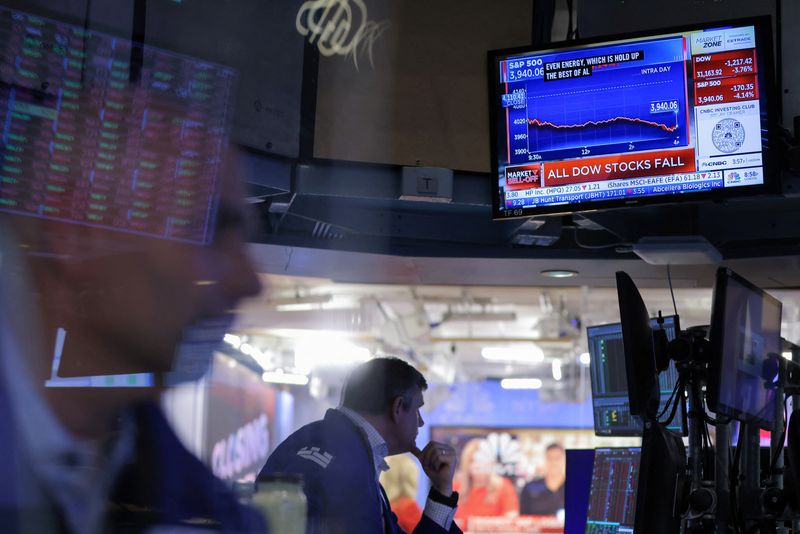Flutter Entertainment beats Q3 earnings estimate despite sports results impact
Investing.com -- Investors should consider selling market rallies until the full impact of the tariffs is understood, according to UBS strategist Bhanu Baweja.
The Trump administration responded to recent market pressures by not escalating trade disputes with all trading partners at this time.
“Trump’s administration isn’t as impervious to market pain as it may have appeared for a while. Its pain threshold has just come into view,” Baweja said in a Thursday note. The U.S. isn’t picking a trade fight with all trading partners, not today anyway.”
While immediate market volatility is expected to ease, leading to potential buying from investors and continued inflows into S&P 500 ETFs, the long-term implications of the tariffs are still uncertain.
The market had previously fallen sharply but had not fully accounted for the economic repercussions of the tariffs announced last week.
According to Baweja, consensus forecasts had been optimistic, predicting S&P 500 earnings growth of 11.2% in 2025 and 12.4% over the next 12 months. However, the strategist believes that if the real forward earnings estimate were to reflect a 5% contraction due to the tariffs, the current valuation multiples would be inconsistent with a potential recession and significant domestic demand collapse.
The analysis further suggests that the combination of increased tariffs on China and reduced reciprocal tariffs would likely result in only a marginal decrease in overall tariff revenue.
“Admittedly, China tariffs may also inevitably be negotiated lower. The distribution of tariffs also matters for markets,” Baweja said.
Nonetheless, the impact on GDP and domestic demand could be substantial, necessitating a downward revision of earnings growth to low single digits or potentially flat growth.
The Federal Reserve's capacity to offset this growth weakness was also questioned by UBS. The minutes from the March 18-19 Fed meeting signaled concerns about persistent tariff-induced inflation, and UBS's economics team projects core PCE to rise above 4% even with the reduced tariffs.
Given the Fed's cautious stance, immediate intervention is unlikely. “We think the Fed is likely to err on the side of being reactive rather than proactive,” Baweja noted.
All in all, Baweja admits that the risk of a severe market downturn has lessened due to the administration's recent tariff decisions. Yet, he believes that the reduced tariffs still pose a serious threat to economic growth and expects negative earnings revisions to continue, creating a headwind for the market.
“We don’t expect the highs to be tested and would recommend selling rallies until we learn more,” he concluded.
